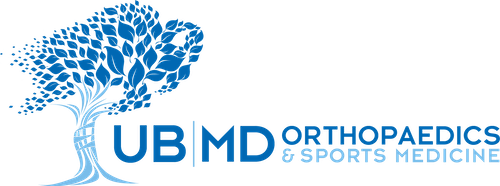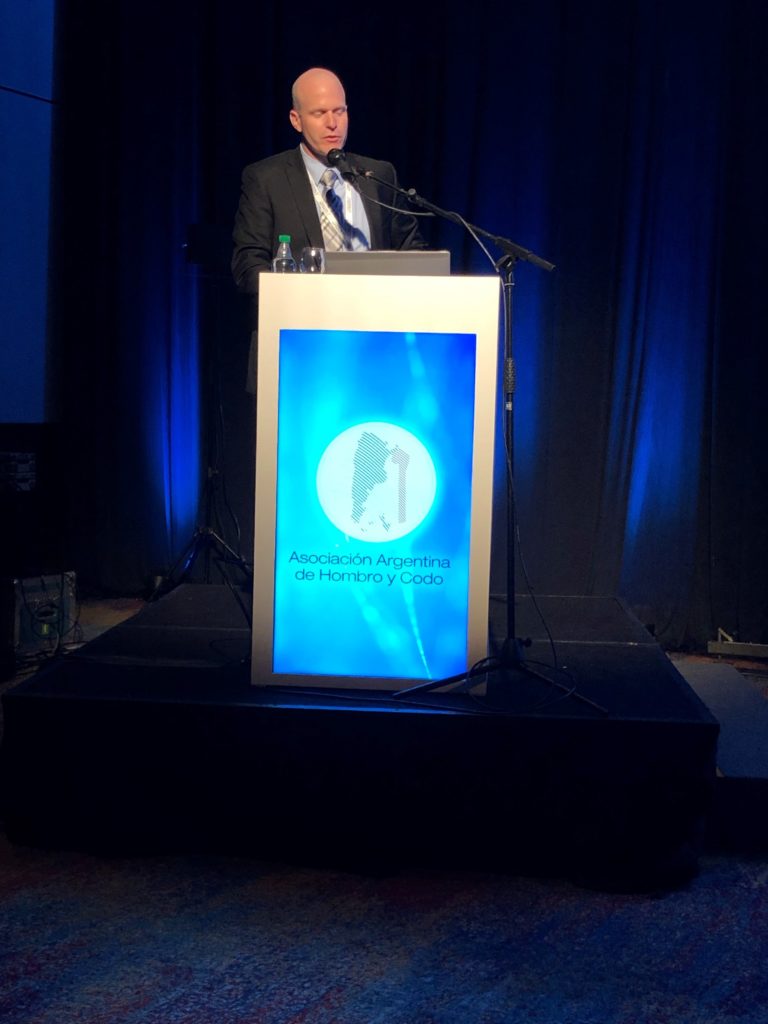Dr. Thomas Duquin, clinical assistant professor of orthopaedics, director of medical student education at the Jacobs School of Medicine and Biomedical Sciences at the University at Buffalo and shoulder and joint replacement and reconstruction specialist at UBMD Orthopaedics & Sports Medicine, recently visited Buenos Aires, Argentina for the International Congress of Shoulder and Elbow Surgery.
The International Congress of Shoulder and Elbow Surgery (ICSES) is a triennial meeting that started in 1980. It is dedicated to helping shoulder and elbow orthopaedic specialists from around the world share experiences and knowledge.
The ICSES 2019 was a three-day event with different cultural themes, jam-packed with various presentations from physicians around the world. It was one of the largest shoulder and elbow congresses in history with over 1,957 participants from 57 countries.
Duquin gave four different presentations at ICSES: Genetic Variation of Propionibacterium Acnes and Association with Orthopedic Shoulder Infections, Reverse Total Shoulder Arthroplasty Baseplate Stability in Superior Bone Loss with Augmented Implant, Reverse Total Shoulder Arthroplasty Stability with Locking vs. Non-Locking Peripheral Screws, and Management of Infection in Total Shoulder Arthroplasty.
“It was an honor to participate as faculty for the 14th International Congress of Shoulder and Elbow Surgery,” said Duquin. “There were over 1,500 shoulder and elbow specialists from around the world participating in this meeting. In addition to presenting the latest evidence in management of infections of shoulder replacements, I had the opportunity to present some of the excellent research that is being performed in the Department of Orthopaedic Surgery at the Jacobs School of Medicine and Biomedical Sciences.
The details on a few of Duquin’s presentations include: “Two studies, performed in collaboration with Elise Martin and Mark Ehrensberger from the Kenneth Krackow Orthopaedic Research Laboratory, [that] evaluate the fixation of reverse shoulder arthroplasty implants. The third project, performed in collaboration with the Department of Genomics and Bioinformatics, investigates the genetic differences in bacteria commonly involved in shoulder implant infections.”
“The meeting was an excellent opportunity to network with surgeons from around the world, and I gained greater understanding of opportunities for care of patients with shoulder and elbow conditions both globally and in our community,” Duquin added.
For more information on ICSES, visit icses2019.org.

